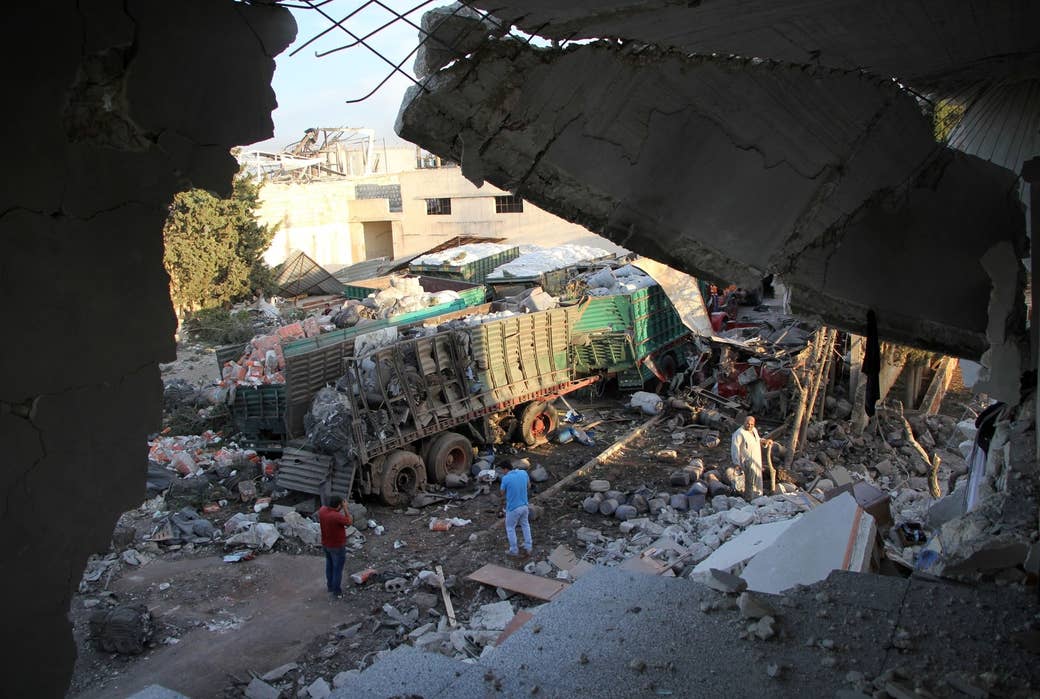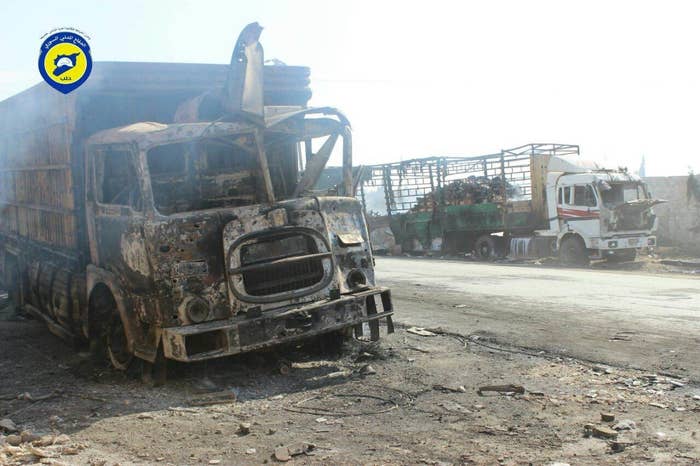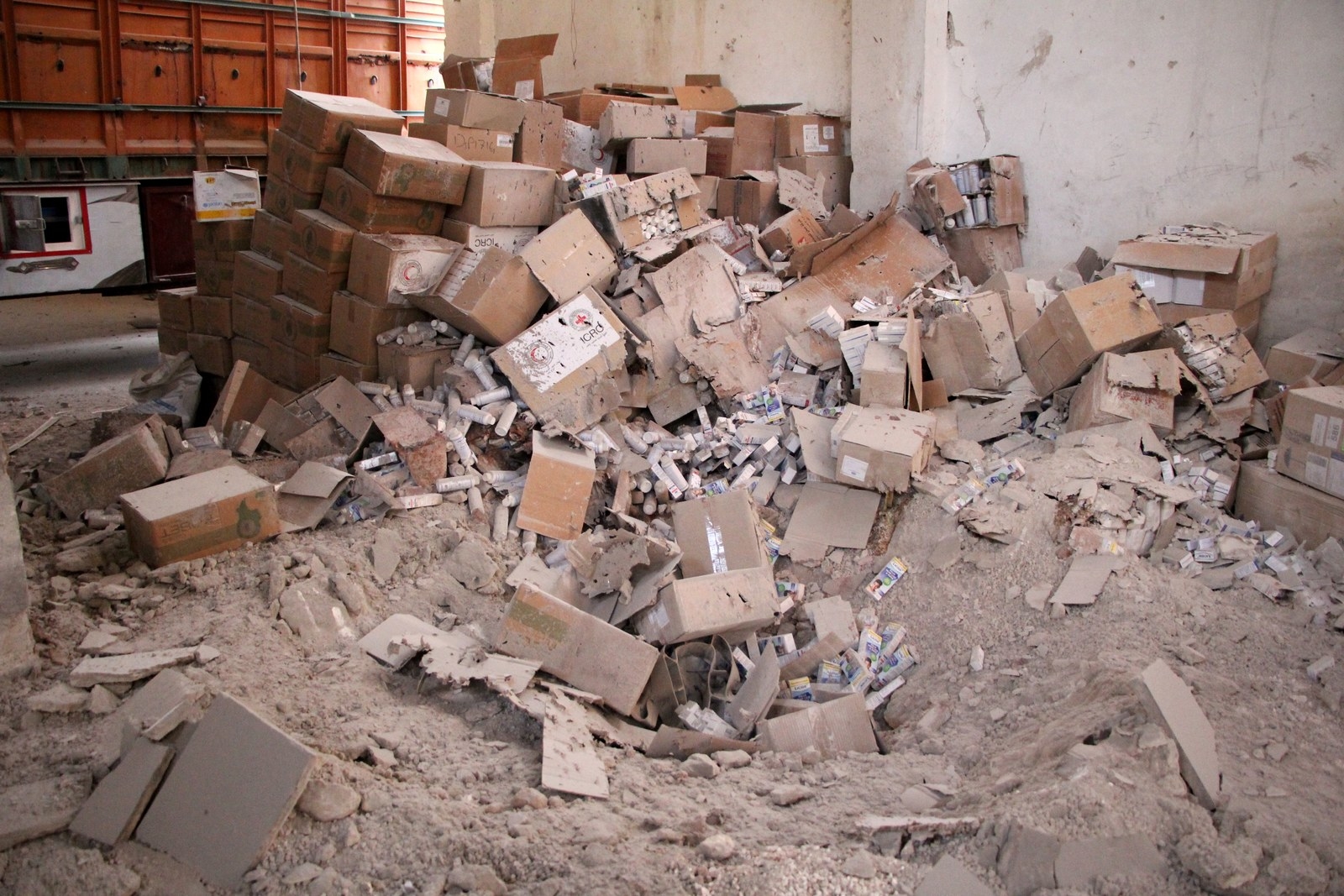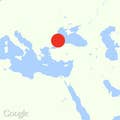
ISTANBUL — The Syrian government and its Russian allies were fully aware of the location of the humanitarian aid convoy that was bombed in Aleppo on Monday — and had approved even small details of its mission.
As part of an exhaustive approval process for the aid convoy, the Syrian government — as well as Russia, the US, and its rebel allies — was provided a list of the contents in the convoy’s 31 trucks along with GPS coordinates for the route it planned to take. The Syrian government then inspected the trucks before they departed its territory and received regular updates on the movements of the convoy as it drove through rebel-held area, as did the other parties in the conflict, said David Swanson, the spokesman for the UN Office for the Coordination of Humanitarian Affairs.
“With all this knowledge of [the delivery] in advance, and the fact that it was pre-planned, and the fact that all parties of the conflict were notified,” he said, “how could this attack take place?”
The convoy was organized by the UN and the International Committee of the Red Cross (ICRC), and assisted by workers from the Syrian Red Crescent — it was part of a humanitarian effort that had brought aid to more than 1.2 million people in the war-torn country in 2016 alone. Its mission — before a series of airstrikes on Monday night hit 18 of its 31 trucks and killed at least 20 people, including a senior aid worker — was to deliver food and medical supplies to help an estimated 78,000 residents of Aleppo’s rebel-held western countryside.
The pre-trip planning process was standard for such deliveries, Swanson said. Since the convoy traveled first through government territory before crossing rebel lines, it also requires explicit permission of the Syrian government. “The route is approved,” Swanson said. “This is negotiated with all parties to the conflict in advance.”

In addition to the fact that updates on the convoy’s movements were provided to the parties of the conflict, it was clearly marked as a humanitarian convoy. It was also attacked as it approached an established warehouse — its location was well known — used by the Syrian Red Crescent to store humanitarian supplies, raising further questions over whether the attack could have been unintentional.
“If this convoy was deliberately targeted, then you have what can easily be classified as a war crime,” Swanson said.
The UN has stopped short of assigning blame for the airstrikes. But US officials have said that either Syrian or Russian jets, or a combination of both, launched the attacks, echoing the initial reports of monitoring groups tracking the conflict. “They knew exactly where this convoy would be,” an official with the Obama administration said, speaking on condition of anonymity because of the issue’s sensitivity. “It's an outrage.”
Officials with the UN and associated humanitarian groups who spoke to BuzzFeed News on condition of anonymity said the process of approving the convoy with the Syrian regime and Russian military would have left little room for deadly targeting errors.
“There had been an extensive de-escalation process with Russian and Syrian officials [to plan the convoy],” said one UN official based along the Turkish border with Syria. The official described a series of meetings that included descriptions of inventory for the convoy, the route and timing of the trucks as well as approval for the members of the convoy itself, coordinated through the ICRC, UN and other groups with the Syrian government. “There were multiple discussions between the UN officials and Damascus,” the official said. “Approval for the convoy came directly from coordination in face-to-face meetings in Damascus with the regime.”
According to one eyewitness, the airstrikes took place over a period of time and appeared intentional.
Hussein Badawi, a rescue worker who was on the scene, told BuzzFeed News that planes had circled the area before a series of airstrikes was launched. The attacks included barrel bombs, he said, crude explosive devices that are deployed by the Syrian military. “We pulled four wounded people from the rubble, and [I saw] more than 12 people dead,” said Badawi, who is the head of the Syrian Civil Defense, the rescue workers known as the White Helmets, in the area. “And they destroyed the humanitarian supplies that everyone knows were meant to help civilians.”

According to a network of civilian monitors that tracks Syrian and Russian airstrikes in northern Syria in order to provide advance warning to residents, there was at least one Russian aircraft in the vicinity at the time of the strikes, as well as multiple Syrian-operated helicopters and jets. The network requested that its name be withheld for fear of being targeted for retaliation.
On Tuesday, both the Syrian and Russian governments denied involvement in the attacks.
News of the attacks sent a shockwave through the humanitarian community. The UN announced on Tuesday that it had suspended all aid convoys in the country. Officials with NGOs working in Syria were quick to take note. “The question [is] whether it was deliberate? The answer is undoubtedly,” read a security assessment circulated by one prominent NGO based on the Turkey–Syria border on Tuesday, which was provided to BuzzFeed News on condition that the organization not be named. “This was cross-line aid, in other words pre-approved by [the Syrian government], which would have had a copy of the convoy paperwork. On that paperwork, all predicted arrival and departure times are listed, and GPS coordinates provided for every location mentioned.”
The fragile ceasefire in Syria had broken down just hours earlier as the 31-truck convoy rolled through the Aleppo countryside with assurance from all parties in the conflict that it would be safe. After the missiles rained down, Omar Barakat, the head of the Syrian Red Crescent in the area, was among the dead. Speaking by phone on Tuesday, Barakat’s son-in-law, Yahya Mayo, said he believed the Syrian government was to blame.
“This has been happening since 2011,” he said, referring to the start of the conflict. “They attacked hospitals, civilians, schools. These are war crimes.”



